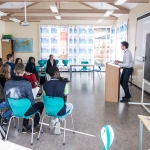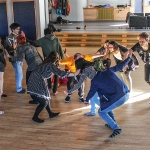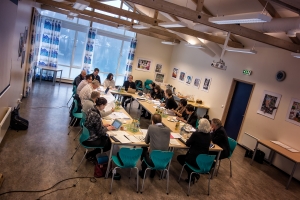Youth and Leadership Day
On Monday we had a Youth and Leadership day at RCN, designed, led and managed by the students themselves. It was attended by the first years of RCN with the aim to introduce them into a culture of participation and awareness of the role of leaders and their place within a team.
There were 8 workshops both of a practical and informative kind. We looked at the concept of Gender and Leadership as well as the the cultural implications of certain leadership styles. Active sessions were carried out as exposure to situations where teamwork was essential to success. These activities were rounded off with sessions on business leadership, taking initiative and on active listening.
In all it was a comprehensive set of workshops, put together to make it a thoughtful day. Hopefully the students of RCN will put some of the techniques and concepts into practice, and in doing so become more aware of their role and responsibilities within teams and ultimately as leaders for the future.











